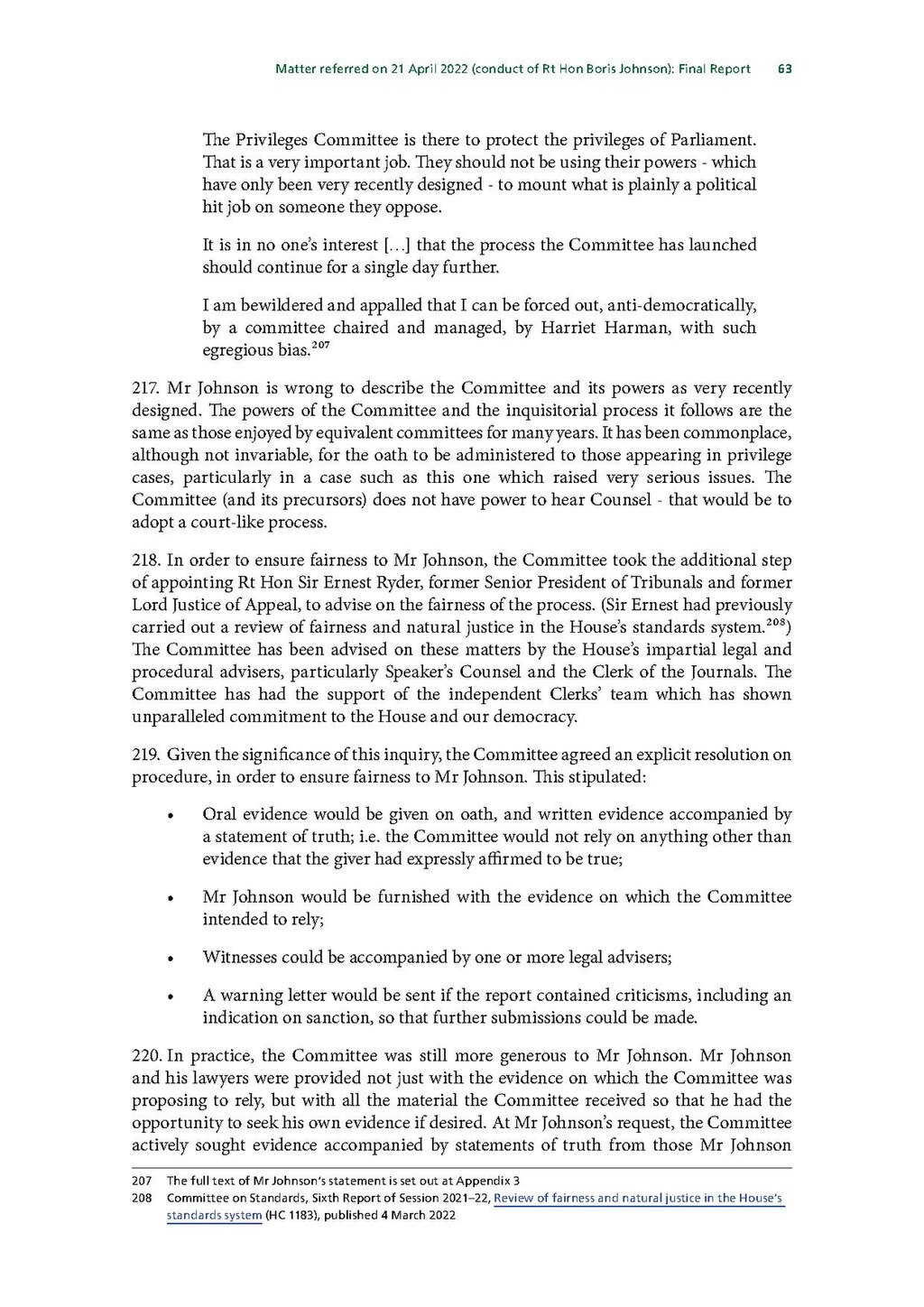The Privileges Committee is there to protect the privileges of Parliament. That is a very important job. They should not be using their powers - which have only been very recently designed - to mount what is plainly a political hit job on someone they oppose.
It is in no one’s interest […] that the process the Committee has launched should continue for a single day further.
I am bewildered and appalled that I can be forced out, anti-democratically, by a committee chaired and managed, by Harriet Harman, with such egregious bias.[1]
217. Mr Johnson is wrong to describe the Committee and its powers as very recently designed. The powers of the Committee and the inquisitorial process it follows are the same as those enjoyed by equivalent committees for many years. It has been commonplace, although not invariable, for the oath to be administered to those appearing in privilege cases, particularly in a case such as this one which raised very serious issues. The Committee (and its precursors) does not have power to hear Counsel - that would be to adopt a court-like process.
218. In order to ensure fairness to Mr Johnson, the Committee took the additional step of appointing Rt Hon Sir Ernest Ryder, former Senior President of Tribunals and former Lord Justice of Appeal, to advise on the fairness of the process. (Sir Ernest had previously carried out a review of fairness and natural justice in the House’s standards system.[2]) The Committee has been advised on these matters by the House’s impartial legal and procedural advisers, particularly Speaker’s Counsel and the Clerk of the Journals. The Committee has had the support of the independent Clerks’ team which has shown unparalleled commitment to the House and our democracy.
219. Given the significance of this inquiry, the Committee agreed an explicit resolution on procedure, in order to ensure fairness to Mr Johnson. This stipulated:
- Oral evidence would be given on oath, and written evidence accompanied by a statement of truth; i.e. the Committee would not rely on anything other than evidence that the giver had expressly affirmed to be true;
- Mr Johnson would be furnished with the evidence on which the Committee intended to rely;
- Witnesses could be accompanied by one or more legal advisers;
- A warning letter would be sent if the report contained criticisms, including an indication on sanction, so that further submissions could be made.
220. In practice, the Committee was still more generous to Mr Johnson. Mr Johnson and his lawyers were provided not just with the evidence on which the Committee was proposing to rely, but with all the material the Committee received so that he had the opportunity to seek his own evidence if desired. At Mr Johnson’s request, the Committee actively sought evidence accompanied by statements of truth from those Mr Johnson
- ↑ The full text of Mr Johnson’s statement is set out at Appendix 3
- ↑ Committee on Standards, Sixth Report of Session 2021–22, Review of fairness and natural justice in the House’s standards system (HC 1183), published 4 March 2022
